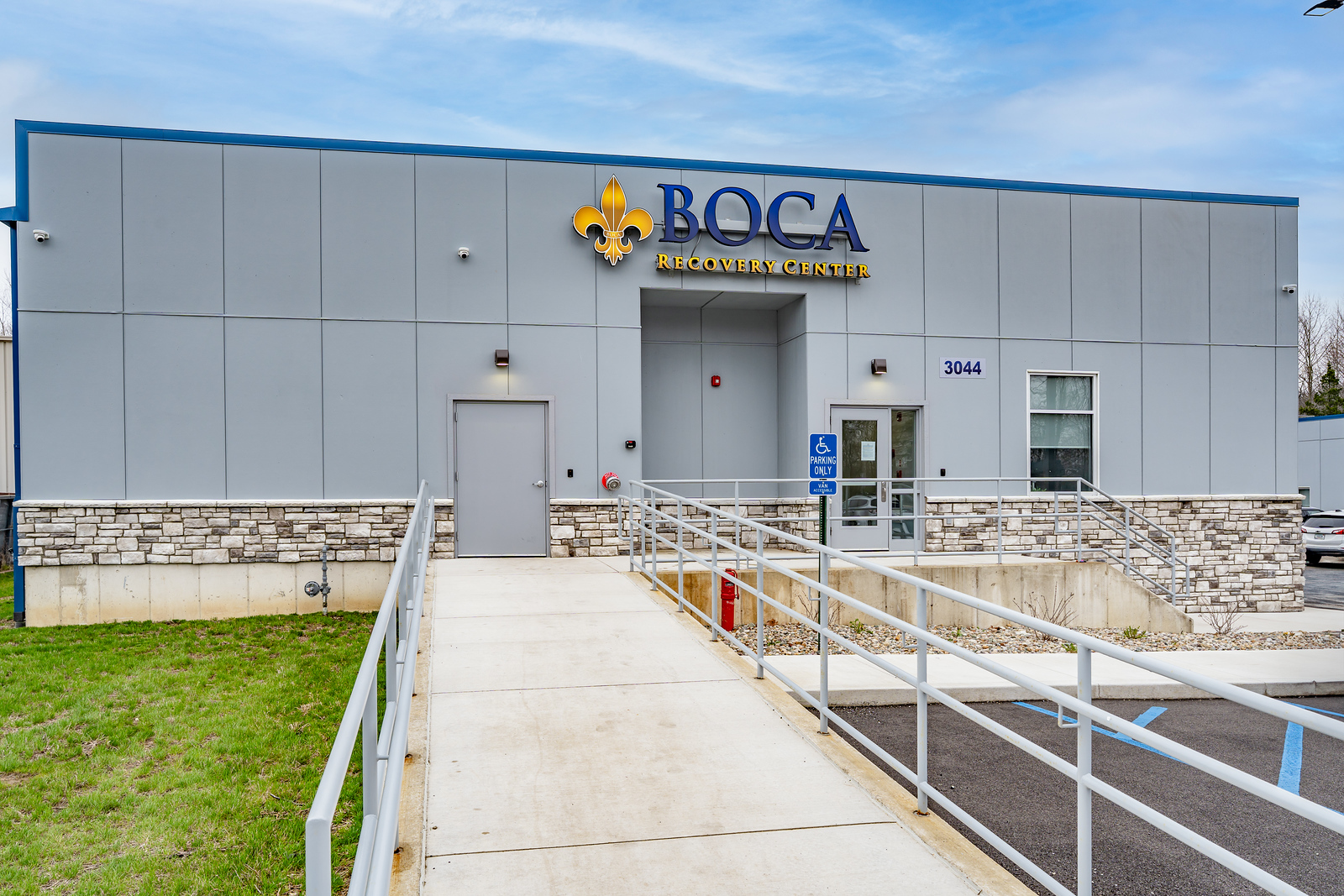What is Xanax?
Xanax (generic name: alprazolam) is a prescription benzodiazepine medication. It’s one of the most prescribed medications in its class.
Electrical activity deep within your brain translates into emotions like fear, anxiety, and mania. Benzodiazepines like Xanax slow those electrical surges by latching onto GABA receptors within the brain. This can cause sedation, which helps relieve conditions like anxiety and panic attacks. Because Xanax can cause physiological dependence, doctors typically only prescribe it for short-term relief.
Medical Use for Xanax
Xanax is approved by the U.S. Food and Drug Administration (FDA) to treat anxiety disorders, including agoraphobia and short-term panic disorder. The average dose used in studies is 5 mg to 6 mg. Doctors may prescribe more or less to help their patients.
Xanax Bar Variations
“Xanax bar” is a slang term you may have heard someone use to describe a Xanax tablet. Xanax bars are rectangular tablets that are scored so they can be broken down into smaller parts, often into quarters.
Generally, each Xanax bar contains 2 mg of Xanax. When the bar is broken in half, the dose is then converted into two 1-mg pieces. Some people may break the bar into four 0.5-mg doses.
If someone uses the term Xanax bar, it’s usually an indication that they are younger and using the drug, or the individual is using the drug and acquiring it illegally.
Individuals looking to score Xanax bars may simply call them bars, zannies, or planks. You won’t ever hear a doctor or pharmacist use these terms to describe the medical use of the drug.
Xanax bars contain higher doses of Xanax than standard tablets. While the effects will be similar to those experienced with any Xanax pill, they will be more intense due to the higher dose, particularly if a person takes the entire bar versus cutting it into smaller doses.
Common Colors
It’s important to understand that the color of a Xanax bar does not indicate effectiveness. This is only determined by the manufacturer and dose.
The real, oval-shaped blue Xanax pill contains 1 mg of alprazolam. Xanax also comes in the form of a white bar pill, which is 2 mg strength, and two smaller pills: a 0.5 mg orange oval pill and a 0.25 mg white oval pill.
All these drugs should be taken as prescribed, and higher-potency pills need to be handled with more care.
Importantly, the blue alprazolam bar that many people refer to as blue Xanax is of a different potency than the actual oval-shaped blue Xanax pill. This pill is of 2 mg strength, the same as the white Xanax bar. This makes it fairly strong. It’s twice as strong as an oval-shaped blue Xanax.
Counterfeit Risks of Blue Bars
One very important detail to discuss regarding any type of alprazolam, but especially Xanax, is that counterfeit pills are a major problem on the black market. If you purchase any type of pill on the black market, there is almost no way to check if a drug is legitimately what was marketed to you without performing some kind of chemical test.
Some signs of counterfeit pills might be obvious, such as a pill being the wrong color or having the wrong markings. For example, no blue bar pill exists that would actuallybe labeled Xanax. However, getting the small details rightisn’t very difficult for a large criminal operation. It’s relatively easy to dye and press pills, so they’re identical to legitimate pills.
Of major concern is that counterfeit pills are often designed to be more powerful and addictive than real pills. They may even contain the opioid fentanyl.
Additionally, some pills can use cheap and dangerous cutting agents that may represent health hazards not present in the real versions of the pills. It’s never safe to use a counterfeit version of a prescription drug. When you purchase drugs on the street, you are likely getting counterfeit pills.


How Long Does Xanax (Alprazolam) Stay in Your System?
Crushing and Snorting Xanax
Some people end up crushing Xanax up and snorting it to experience their effects quickly and more intensely.
Snorting Xanax is a fairly strong indication that a substance use disorder is present. People may snort Xanax because they believe the effects are more immediate, and many enjoy the “rush” that occurs when snorting drugs through the nostrils.
Whenever any sort of powder or debris is ingested through the nostrils, it can cause serious airway obstruction and result in lung infections. Snorting drugs can also bring about severe and recurrent sinus infections as well as nasal lining inflammation.
Many drugs are snorted with rolled-up dollar bills. This practice can also invite infection, as tons of microorganisms get transferred into the nostrils and can potentially cause an infection.
Risks of Snorting Xanax
Snorting Xanax can result in a variety of side effects, which can be short-term or long-term:
Short-term side effects that may occur include:
Lethargy
Disorientation
Constipation
Nausea
Limited concentration abilities
Poor memory recall
Painful urination
Weight loss
Depression
Suicidal ideation
Long-term side effects associated with snorting Xanax include:
Irregular sleep patterns
Rebound anxiety
Increased aggression
Impaired sense of smell
Gastrointestinal issues
Shakiness
Numbness of the extremities (tingling of the fingers)
Respiratory issues
Throat irritation
Holes in the nasal cavity
Nasal tissue damage
Lung damage
Dangers of Taking Too Much Xanax
Although certain individuals may be cleared for higher dose amounts, there are medical guidelines that should be followed to use Xanax without facing the consequences of a potential overdose.
Doses will vary from person to person, depending on the particular prescription. It’s important to follow the directions of the prescribing professional.
For anxiety, the oral dosage for adults is usually around 0.25 to 0.4 mg taken three times daily. Of course, a doctor can increase the dose amount if needed. The total daily dose amount should not exceed more than 4 mg in 24 hours.
For panic disorder, the general dose recommendation is 0.5 mg three times a day. The total daily dose amount should not exceed 10 mg in 24 hours.
Never double up on a dose, even if you forgot to take one.
Symptoms of Too Much Xanax and Xanax Overdose
Xanax has a quick onset. Taking too much Xanax can often result in the following undesirable symptoms, rather quickly:
Drastic changes in appetite
Diarrhea
Constipation
Poor concentration
Intense drowsiness
Dry mouth
Headaches
Unusual salivation
Mood changes or irritability
Joint pain or body aches
Lightheadedness or dizziness
Nausea or vomiting
Unusual talkativeness
Unusual boosts in energy
More severe symptoms are the signs of a Xanax overdose, which include:
Hallucinations
Suicidal ideation
Delirium
Shaking
Seizures
Coma
While this can occur, it’s rare to overdose only from benzodiazepine misuse. It’s much more common for benzodiazepines to be found along with other drugs in overdose cases. Most often, the other drugs are opioids or alcohol.
Counterfeit Xanax: A Growing Risk
Authentic Xanax contains alprazolam, which is categorized as a short-acting benzodiazepine. However, fake or counterfeit Xanax may contain any substance. The user never truly knows what they are getting since the production of these pills is not regulated.
According to the United States Drug Enforcement Administration (DEA), 6 out of 10 counterfeit prescription pills, including fake Xanax pills, have a potentially lethal amount of fentanyl in them. This number has increased from 2021 findings, which showed that 4 out of 10 fake pills contained lethal amounts of fentanyl.
There are a variety of reasons why counterfeit Xanax is produced. In many cases, criminal organizations acquire fake pills at a low cost. They then turn around and sell them as authentic Xanax for the going rate. Adolescents and young adults are often targeted as potential buyers.
Identifying Fake vs Real Xanax
The most effective way to avoid counterfeit Xanax is to never purchase this sort of medication on the streets or from anyone but a medical professional who gives you a prescription. Only take Xanax that you are prescribed, and only take it exactly as it is prescribed.
These are a few other measures you can take to avoid purchasing or acquiring fake Xanax:
Never purchase medication online or via social media
Avoid purchasing any drug that is advertised by a slang name, such as bars, ladders, planks, or bricks
Avoid using prescription medication recreationally
Avoid purchasing medication from street suppliers
Only fill prescriptions at licensed pharmacies
Do not purchase Xanax from overseas organizations
Do not use Xanax for recreational purposes
If you take steps to only purchase Xanax or any prescribed drug from a licensed pharmacy, you won’t run into a situation where you take counterfeit Xanax.
Signs and Symptoms of Xanax Abuse
Xanax is an addictive drug. If you take it for too long, it can cause brain cell changes that lead to tolerance, dependence, and addiction.
Benzodiazepines are addictive because they increase dopamine levels. Dopamine is the pleasure neurotransmitter involved in the addictiveness of well-known drugs like heroin.
With repeated abuse, your brain cells no longer make this drug without Xanax. You’ll keep taking the drug just to feel normal.
Xanax abuse can eventually affect virtually every area of a person’s life, including behavioral, physical, and psychological effects.
Behavioral signs of Xanax abuse can include the following:
Doctor shopping to get additional prescriptions or refills
Using the medication in secret or engaging in suspicious behaviors
Lacking control over Xanax use
Neglecting responsibilities at school, work, or home
Drop in performance at work or school
Changes in friends
Falling asleep suddenly or exhibiting irregular sleeping patterns
Forging or stealing medication to maintain use
Physical signs include:
Slurred speech
Drowsiness
Coordination issues
Poor motor skills
Damage to internal organs
Respiratory issues
Balance problems
Psychological signs include:
Memory issues
Mood swings
Depression
Unexplained changes in attitude or personality
Fearfulness or anxiety for no reason
Insomnia
Hallucinations
Suicidal ideation
Psychosis
Xanax Addiction and Treatment
Anyone who abuses Xanax could develop an addiction. However, certain risk factors could make some people more susceptible to Xanax addiction than others.
These are known risk factors:
Genetic Factors
Genetics can influence your reaction to drugs like Xanax. If you have many receptors within your brain and body, you’ll feel more euphoria with each dose. That could make the drug more reinforcing and, therefore, more addictive.
Additionally, addiction tends to run in families—if your parents or relatives have struggled with substance abuse, you may be more vulnerable to Xanax addiction.
Environmental Factors
People who abuse Xanax need a constant supply, and they often can’t get it from doctors. Living in a place where Xanax is easy to access could facilitate an addiction.
For example, if you work in a hospital or medical clinic, you could get the drug more easily than if you work in an elementary school.
Other environmental factors and risks include:
Trauma
Childhood neglect
Childhood physical, emotional, or sexual abuse
Parental substance abuse
Family rejection of gender identity or sexual orientation
Poor parental monitoring
Delinquent behaviors
Low academic achievement
Peer pressure
Lack of family involvement
Using substances at a young age
Xanax Addiction Treatment Options
It’s very difficult (and not safe) to quit using Xanax without support—this is because xanax withdrawal symptoms like seizures can be life-threatening. Medical detox can help manage your withdrawal symptoms and keep you safe. Xanax addiction treatment programs can help you get sober and build up your relapse prevention skills. The following elements might be included in your recovery program:
Supervised Taper: Getting Off Xanax Safely
During a supervised taper, your doctor provides smaller amounts of Xanax to allow your brain time to adjust to sobriety. Some people take a smaller dose every day, while others need a slower schedule to avoid uncomfortable and potentially dangerous symptoms.
Quitting Xanax and other benzos cold turkey isn’t safe. Quitting suddenly can lead to severe Xanax withdrawal symptoms, including seizures and psychosis. Never try to quit Xanax without a doctor’s help.
Medical Detox
Since detoxing from Xanax can be life-threatening, it’s wise to enroll in a medical detox program. Here, a team will supervise your Xanax taper process and offer treatment for withdrawal symptoms and complications.
You’ll be removed from all temptations to relapse to Xanax misuse, increasing your chances of success. You’ll receive supportive care, counseling, and withdrawal medications.
Inpatient Rehab
In an inpatient rehab program, you live within the treatment facility and away from temptation. It’s the most intensive option and involves a myriad of treatment modalities paired with structure and routine.
Outpatient Rehab
In an outpatient rehab program, you continue to live at home while you heal. This gives you more flexibility if you need to tend to professional, personal, or academic duties while you’re in treatment. Either model could be right for you.
Behavioral Therapy
The two most common kinds of behavioral therapy include cognitive behavioral therapy (CBT) and dialectical behavioral therapy (DBT).
With CBT, you work with a therapist to understand the connection between your thoughts, feelings, and behaviors to avoid relapse and learn coping skills. DBT involves talk therapy and includes an educational aspect to improve emotional regulation, distress tolerance, mindfulness, and interpersonal effectiveness.
Aftercare
After you complete Xanax rehab, you’ll have the skills you’ll need to stay sober, but you may face new challenges that put your recovery at risk. Your aftercare program can help you stay in touch with treatment. You might use support group meetings or therapy sessions to ensure you stay on the right track.
Xanax Abuse & Addiction FAQs
We’ve compiled some of the most frequently asked questions about Xanax abuse.
Yes. If you work with your doctor to receive your Xanax prescription and take it as directed, then it can be a safe way to manage your anxiety and any related panic disorders.
Xanax can be detected in your urine for about four days, saliva for two, blood for one day, and hair for about one month.
Yes, Xanax can cause weight gain.
No. It’s not safe to quit Xanax cold turkey. Doing so can lead to life-threatening symptoms, including seizures.
No. Xanax tablets are designed to move through the digestive tract. Crushing and snorting Xanax can lead to an overdose, sinus infections, and more.
It can take an hour or so for Xanax to start working if you take the medication orally.
No. Xanax is a benzodiazepine medication, not an opioid.
Yes. Take too much Xanax, and you can experience extreme sedation, including very slow breathing. These episodes can be fatal.
- Number of alprazolam prescriptions in the U.S. 2004-2020. Statista. Published October 17, 2022. Accessed July 5, 2023.
- Drug overdose death rates. National Institute on Drug Abuse. Published June 30, 2023. Accessed July 5, 2023.
- Benzodiazepines: It's Time to Return to the Evidence. (October 2020). The British Journal of Psychiatry.
- Chatterjee, R. Steep climb in benzodiazepine prescribing by primary care doctors. NPR. Published January 25, 2019. Accessed July 5, 2023.
- Benzodiazepines in combination with opioid pain relievers or alcohol: Greater risk of more serious ED visit outcomes. The DAWN Report. Published December 18, 2014. Accessed July 5, 2023.
- Xanax. U.S. Food and Drug Administration. Published September 2016. Accessed July 5, 2023.
- Tan KR, Brown M, Labouèbe G, et al. Neural bases for addictive properties of benzodiazepines. Nature. 2010;463(7282):769-774. https://www.nature.com/articles/nature08758
- Molecule of the week archive: Alprazolam. American Chemical Society. Published November 2014. Accessed July 5, 2023.
- Ait-Daoud N, Hamby AS, Sharma S, Blevins D. A Review of Alprazolam Use, Misuse, and Withdrawal. J Addict Med. 2018;12(1):4-10.
- Alprazolam. U.S. National Library of Medicine. Published May 15, 2021. Accessed July 5, 2023.
- Benzodiazepines and opioids. National Institute on Drug Abuse. Published November 7, 2022. Accessed July 5, 2023.











